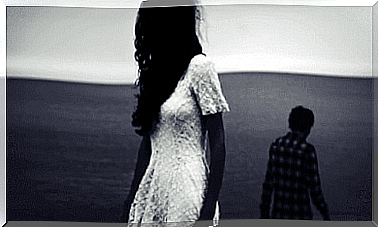Blindness To Change: The Overestimation Of Our Visual Ability

All around us there are constant changes. These changes are relevant, but we are often not aware of them. Therefore, it is said that people suffer from change blindness because we are overconfident in our ability to detect visual changes.
To demonstrate this extreme optimism regarding our observational abilities, let’s view the video below. Would you be able to identify all the changes that took place in the scene?
Amazing, isn’t it? Did you find the 21? Blindness to change is a topic that began to be researched in recent years due to its involvement in different areas and professional disciplines.
speed and perspective
This lack of detection of changes occurring in the visual field was first defined by Ronald Rensink in 1997. This psychologist found differences in this phenomenon depending on whether these changes are introduced gradually or abruptly. Furthermore, it considers that this effect is greater when changes are introduced during a cut or a panoramic image, as in the case of this other video. Were you able to identify the changes the first time?
Let’s imagine that we are watching a movie. More specifically, a scene where a salesperson and a customer are talking at a counter. If the seller squatted down (supposedly to pick something up) and was replaced by someone else, most times the viewer would not notice this change . How can be? Why don’t we notice this change so relevant?
Why blindness to change
Our brain is “lazy” by nature. We are phylogenetically programmed to save as much cognitive and energy resources as possible. This is one of the explanations attributed to blindness to change.
This organ is not a recorder that is constantly recording and processing all the details and data it witnesses. It tends to focus only on those who are most susceptible to being changed on a conscious level. A selection that, in turn, is the result of experience and personal consistency. (Simons and Levin, 1998).
For example, in the previous case, it is more possible that what changes in the scene is the object that is on the counter (placed by the seller), and not one of the interlocutors. Our brain assumes it’s the same person, because that allows you to save energy.
selective attention
The phenomenon is accentuated if people receive stimuli that capture their attention more and keep it fixed. This would explain why, if we witness a robbery and see the thief with a gun, we are hardly able to take our eyes off the pistol. Overall, this image would exhaust all the attention spans we have and leave no room for more detail. We brought another very curious video that measures this ability. You must count how many times players wearing white jerseys pass the basketball.
What’s up? Had you seen the gorilla initially?
Illusionists or magicians frequently use this technique and “take advantage” of blindness to change. They know perfectly well where to generate the right attentional tension and how to perform tricks at the right moment. Moving around in this kind of invisibility cloak is a real art!
blindness to change blindness
As we mentioned earlier, our daily lives are governed by change. However, rather than modestly believing that many go completely unnoticed, we are convinced that we are capable of appreciating very small and gradual changes. Therefore, it is also often said that we are blind to change.
For example, there is a case as illustrative as it is frequent. People can walk the same path to work for years and not appreciate the small changes that occur overnight. If a wall was painted a different color, if a traffic sign was removed, if any establishment closed… Until one day, when passing by again, they think: since when has this been like this? Has it happened to you?
Just as it happens in our environment, it happens in ourselves. We look in the mirror every day and don’t appreciate the evolution and changes that take place in our face and body as we age. But what if we stopped seeing each other for two months? Likewise, when we meet a friend we haven’t seen for a long time, we notice the small changes in his appearance: thinness, wrinkles, marks… However, if we saw him every day, these signs of the passage of time would not call our attention.
Our brain is a very unknown universe. The perceptual phenomena studied within the field of neuroscience and cognitive psychology, such as blindness to change, show the complexity of this organ.









